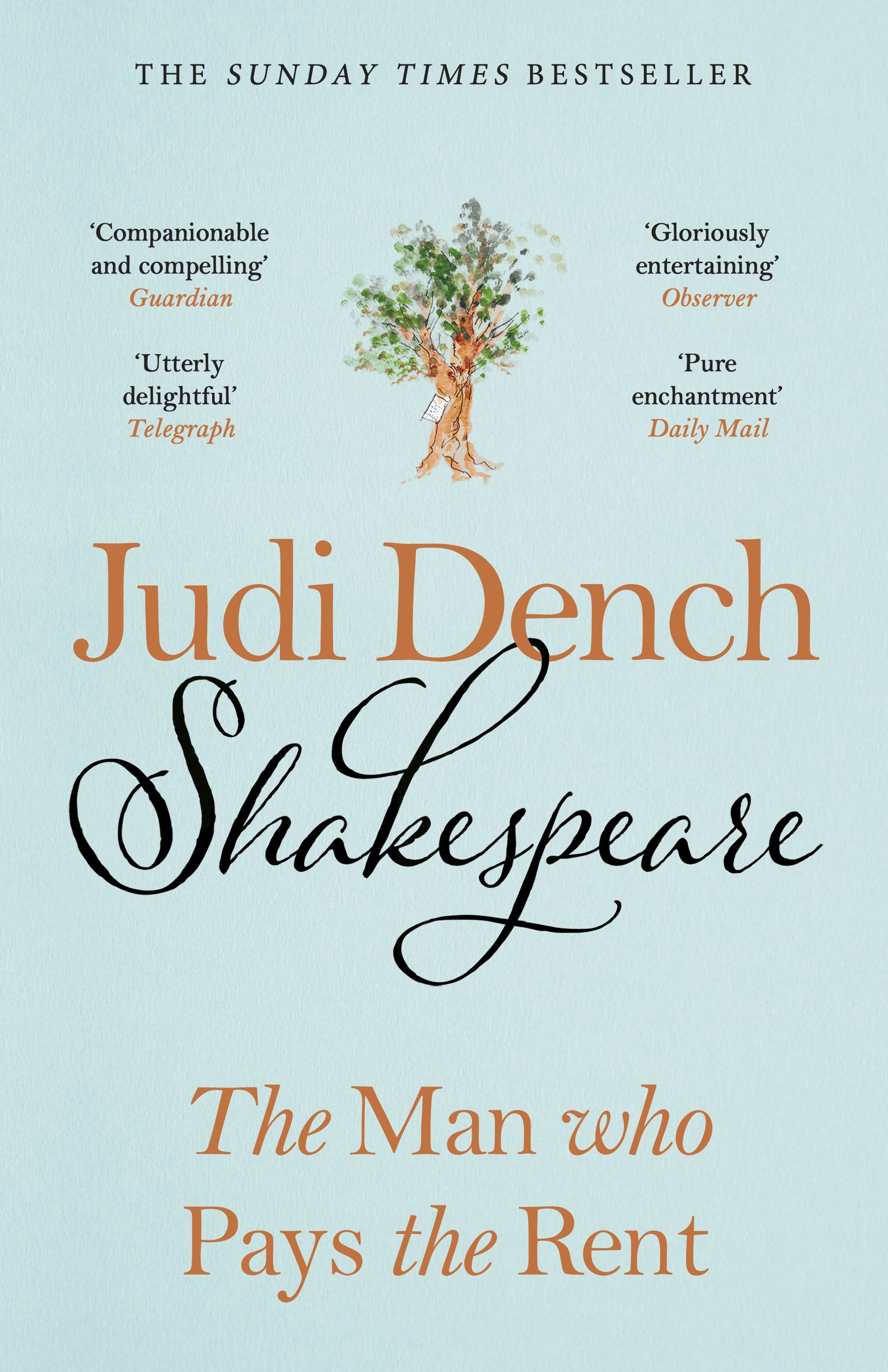
- Free Article: No
- Contents Category: Shakespeare
- Review Article: Yes
- Article Title: Corpsing with Branagh
- Article Subtitle: Profound insights into Shakespeare’s language
- Online Only: No
- Custom Highlight Text:
In 1957, Michael Benthall, a director at the Old Vic, took a chance on a young woman straight out of drama school, casting her as Ophelia in a production of Hamlet starring John Neville and Coral Browne. I was lucky enough to be in the audience with my mother when Judi Dench, a velvet-voiced cherub in virginal white, made her début. An infinite variety of stage and film performances have gone by since then, but none has erased the memory of her stage presence that night.
- Featured Image (400px * 250px):

- Alt Tag (Featured Image): Carol Middleton reviews ‘Shakespeare: The man who pays the rent’ by Judi Dench with Brendan O’Hea
- Book 1 Title: Shakespeare
- Book 1 Subtitle: The man who pays the rent
- Book 1 Biblio: Michael Joseph, $36.99 pb, 384 pp
- Book 1 Cover Small (400 x 600):

- Book 1 Cover (800 x 1200):

Shakespeare is still Dench’s passion, and her prodigious memory is a storehouse of his plots and scripts, his sonnets and soliloquies. Through her recollections, Shakespeare: The man who pays the rent captures decades of theatrical history: various performances of twenty Shakespeare plays and the thirty roles that Dench performed in them, with appearances from revered actors and directors at the Old Vic and the RSC. A chapter is devoted to each of the twenty plays, interspersed with segments on related topics: failures, audiences, and critics.
The book started life as a series of conversations, held over the course of four years, between Dench and her fellow actor and director, Brendan O’Hea. The recordings were destined for the archives of the Globe Theatre, but at some point a decision was made to publish the edited transcripts for a general audience. There is no index, no footnotes. It is not an intellectual conversation, but a playful discussion between two old friends, with hilarious anecdotes and relentless ribbing. Yet the core of the conversation is a profound insight into the language of Shakespeare, the emotions and relationships of his characters, and how to convey these in performance.
O’Hea must take credit for the masterful editing; he foregrounds Dench’s words to recreate her distinctive voice and gift for repartee; and limits his role to that of interviewer. His questions act as prompts to trigger her memories and clarify the plot of the play for the reader. Regardless of whether you have seen the play performed or read the script, it is easy to follow the stories and be captured by the drama. If you have witnessed any of these productions, prepare to be thrilled a second time.
Dench’s eloquence brings the performances back to life. We hear the actors, many of them household names, speak their lines and whisper their wicked asides. She has played their wives, sweethearts, and mothers – from Lady Macbeth to downstairs maids and fairies with attitude. She has teamed up regularly with Kenneth Branagh. The anarchic pair are prone to ‘corpsing’ (theatre slang for getting the giggles). Benedict Cumberbatch played her son in the film of Richard III, after popping the question – ‘Will you play my mother?’ – from the front row of the audience at the Hay Festival. She was mother to Daniel Day-Lewis’s Hamlet at the National Theatre, in what turned out to be his final stage performance (he had suffered a nervous collapse onstage). Much to everyone’s surprise, she was cast as Cleopatra to Anthony Hopkins’s Antony. The production had extraordinary reviews. ‘I thought Tony Hopkins was thrilling – dangerous, daring, unsurpassable,’ she says.
For Dench, language is the key to performing Shakespeare. If you pay attention to the line breaks, the rhythm of the iambic pentameter – akin to the beating of the heart – and the shifts in tone from blank verse, to rhyming verse, to prose, the drama will play itself. Shakespeare ranges across every situation in life, every emotion, and each actor brings her own life experience to the role. It is Dench’s belief that you don’t play a character, you play a situation and let the lines do the work. She takes us by the hand and leads us through the process in each play.
When we come to the twentieth play under the spotlight, we are back at the opening season of Dench’s career at the Old Vic. Franco Zeffirelli was over from Italy, directing Shakespeare for the first time. His Romeo and Juliet was ‘a revelation, even perhaps a revolution’, according to critic Kenneth Tynan. It broke from the formal tradition of Shakespearean productions with its naturalistic approach and the raw emotion at its heart. I still remember the earthy Mediterranean colours of the set and costumes, and the exuberant passion of the perfectly paired adolescent lovers, Dench and John Stride.
Franco was nothing but emotion. And to play Shakespeare you need both. It’s no good thinking just about the iambic pentameter, and it’s no good just focusing on the passion – it’s a marriage of the two. The one informs the other … the poetry is what sustains the play and holds it together – but the emotion is the petrol.
The decision to publish the transcripts of these fascinating discussions was an inspired one, giving us a chance to be included in the conversation. Dench is adamant that the audience is part of the equation in any production. The book comes as a relief after Dench’s memoir And Furthermore (2010), a pleasant enough romp through her career. Shakespeare: The man who pays the rent is made of sterner stuff.


Comments powered by CComment